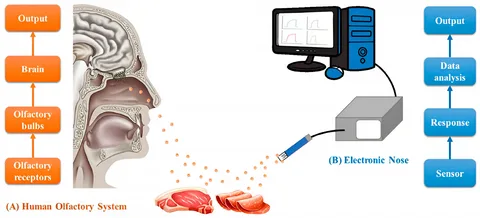Lifestyle
How to Create a Balanced Life with Minimalist Living

Introduction
Living a balanced life in today’s busy world can feel overwhelming. With so many distractions and demands, it’s easy to feel stressed and out of control. That’s where minimalist living can help. By simplifying your life, you can make room for the things that matter most. Minimalism is not about owning fewer things; it’s about focusing on what brings you happiness and peace.
This article will explore how minimalist living can help you find balance, reduce stress, and create a life you truly enjoy. Let’s dive into the simple ways to start living with less and getting more out of life.
What is Minimalism and Why Does it Matter for Balance?

Image by: Yandex.com
Minimalism is the practice of living with fewer things, focusing on what adds real value to your life. It’s about clearing out distractions and making space for the essentials things that bring joy, peace, and purpose. Minimalism is not just about decluttering your home; it’s about reducing the noise in your mind and life to find true balance.
In a balanced life, your time, energy, and resources are well-distributed. You aren’t overworked or stressed out. You have enough time for work, relaxation, personal growth, and spending time with loved ones. Embracing minimalist living is one way to achieve that balance.
How Can Minimalism Help Create Balance in Your Life?

Image by: Yandex.com
Adopting minimalist living can change the way you approach life. Here’s how it can help you achieve balance:
1. Declutter Your Space for Peace of Mind
A cluttered home can make you feel overwhelmed and stressed. By decluttering, you create a peaceful, organized environment. This simple act can clear your mind and make your daily life feel more manageable.
Start by clearing out one area at a time. Whether it’s your desk, closet, or kitchen, removing items that don’t serve a purpose can make your space feel calmer and more inviting.
2. Simplify Your Daily Routines
Minimalism encourages us to simplify our routines. If you’re always rushing and feeling like you’re not getting anything done, it’s time to simplify.
Create a daily schedule that balances work, relaxation, and self-care. Focus on tasks that are truly important, and cut out activities that waste your time. For example, try making time for exercise, hobbies, or family each day. A simple routine can help you feel more in control.
3. Focus on What Truly Matters
Minimalism teaches us to focus on quality over quantity. Instead of trying to keep up with everything, spend your time on things that bring you real happiness. Whether it’s building stronger relationships, focusing on meaningful work, or practicing self-care, quality experiences lead to a more balanced life.
For example, instead of collecting lots of material possessions, invest in experiences that make you happy. Spend time with people you care about, engage in activities that make you feel fulfilled, and simplify your choices.
4. Mental Clarity and Emotional Calm
A major benefit of minimalist living is the mental clarity it offers. When your environment is clear and organized, your mind can follow suit. Decluttering and simplifying your life can help you focus, reduce stress, and feel more at peace.
In addition to cleaning your physical space, practice mindfulness or meditation to clear your thoughts. When you simplify your surroundings, it becomes easier to focus on what’s important and live a calm, stress-free life.
Practical Tips to Live a Balanced Life with Minimalism

Image by: Yandex.com
Here are some simple, actionable tips to help you start living a balanced life with minimalist living:
1. Start with Small Changes
You don’t need to overhaul your life all at once. Start by decluttering one part of your home, like your bedroom or workspace. Once you see how this creates a more peaceful space, you’ll be motivated to continue simplifying your life.
2. Set Clear Priorities
Identify what’s most important to you. Ask yourself: What makes me happy? What do I value most? By figuring out your top priorities, you can focus on them and let go of things that don’t align with your goals.
Whether it’s work, family, health, or personal growth, giving your energy to the things that matter most will help you feel more balanced.
3. Declutter Your Digital Life
It’s not just your home that can get cluttered—your digital life can also become overwhelming. Unsubscribe from emails that don’t interest you, delete old files, and limit your time on social media. This digital decluttering will help you feel more focused and less distracted.
4. Live with Intention
Minimalism is about living with purpose. Think about your daily habits and whether they align with your values. If not, make changes. For example, stop multitasking and focus on one task at a time. Prioritize activities that help you grow, relax, and enjoy life.
5. Make Time for Yourself
A balanced life includes time for self-care. Make sure to schedule breaks, practice relaxation techniques, and take care of your body. Whether it’s reading a book, going for a walk, or meditating, time for yourself is essential for mental and physical well-being.
The Future of Minimalist Living

Image by: Yandex.com
As more people embrace minimalism, the future of this lifestyle looks promising. In a world that is increasingly focused on sustainability, minimalism aligns perfectly with the growing interest in reducing waste, consuming less, and living more consciously. With advancements in technology, minimalism is also being integrated into various aspects of life, such as digital minimalism and simple living apps. People are becoming more aware of the impact their choices have on the environment, and minimalist living provides an effective way to reduce their carbon footprint. The future of minimalism is about living intentionally, reducing consumption, and creating a lifestyle that is both simple and sustainable.
Comparative Table: Simple Steps for Creating Balance with Minimalist Living
| Step | Action |
|---|---|
| Declutter Your Home | Clear out one space at a time, removing unnecessary items |
| Set Priorities | Identify what’s most important in your life and focus on that |
| Simplify Your Routine | Create a simple daily routine that includes work and relaxation |
| Declutter Your Digital Life | Unsubscribe from emails and reduce screen time |
| Prioritize Self-Care | Make time each day for rest, exercise, or relaxation |
Conclusion: Embrace Minimalism for Balance and Simplicity
Minimalist living is an effective way to create a balanced life. By simplifying your routines, clearing out clutter, and focusing on what truly matters, you can enjoy a more peaceful, fulfilling life. Minimalism is not about giving up what you love; it’s about making space for what truly brings joy, purpose, and balance into your life.
Call to Action
Ready to create a more balanced life? Start with small steps by decluttering your space and simplifying your routine. For more tips on minimalist living and creating balance in your life, visit our website and take the first step towards a simpler, more fulfilling lifestyle.
Clothing
Palace Streetwear: Skate Culture Meets US Fashion

In the world of fashion, trends come and go, but some brands create a culture that lasts. One of those powerful names is Palace Streetwear. Born from skate culture and built with bold creativity, Palace has become a global symbol of style, freedom, and youth energy. In the United States, Palace Streetwear has built a strong fan base among skaters, artists, students, and fashion lovers who want more than just clothes—they want identity.
Palace is not just about wearing a hoodie or a jacket. It is about expressing who you are. It represents confidence, creativity, and a fearless attitude. From the streets of New York to the skate parks of California, Palace Streetwear is now part of everyday American fashion.

The Roots of Palace Streetwear
Palace started in London in 2009, created by a group of skaters who wanted something different. They didn’t follow fashion rules. Instead, they made clothes that felt real—built for skating, moving, and living in the streets.
What made Palace special was its honesty. It did not try to look perfect. It showed raw energy, humor, and personality. The famous Tri-Ferg logo quickly became a sign of authenticity. People who wore Palace felt like part of a community, not just customers.
When Palace entered the US market, it felt natural. American streetwear culture already loved skate fashion, bold graphics, and limited drops. Palace fit perfectly into that world while still feeling fresh and different.
Why Palace Streetwear Is So Popular in the USA
Palace Streetwear has grown fast in the United States because it connects deeply with youth culture. Here’s why Americans love it:
- Real Skate Roots: Palace is made by skaters, not just designers. It feels authentic.
- Limited Drops: New items are released in small quantities, creating excitement and demand.
- Bold Designs: Every hoodie, tee, or jacket stands out with strong graphics and unique ideas.
- Celebrity Support: Rappers, athletes, and influencers in the US often wear Palace.
- High Quality: The fabric, stitching, and fit are made to last.
In cities like Los Angeles, New York, and Chicago, Palace Streetwear is part of the street fashion language. It speaks to people who want to stand out without trying too hard.
Key Palace Streetwear Products
Palace offers a full range of streetwear essentials that work for daily life, skating, and casual style.
Hoodies
Palace hoodies are heavy, warm, and stylish. They often feature large logos, creative prints, and strong colors. These hoodies are perfect for layering in winter or wearing on cool evenings.
Palace T-Shirts
Simple but powerful, Palace t-shirts are known for clever designs and humor. They are simple to style and perfect for daily use.
Palace Jackets
From windbreakers to puffer jackets, Palace outerwear mixes street style with comfort. Many designs are inspired by classic sportswear, making them both trendy and timeless.
Palace Skate Decks
True to its roots, Palace continues to make skateboards. These decks are not just tools—they are art pieces loved by collectors and skaters.
Accessories
Caps, beanies, socks, and bags complete the Palace look. These items add personality to any outfit.
How to Style Palace Streetwear
One of the best things about Palace Streetwear is how easy it is to wear. You don’t need to be a professional skater to rock Palace. Here are some simple style ideas:
- Everyday Look: Palace tee + jeans + sneakers. Clean, simple, and stylish.
- Street Fit: Palace hoodie + cargo pants + cap for a bold street vibe.
- Layered Style: Palace jacket over a graphic tee with relaxed trousers.
- Skate Ready: Loose pants, Palace hoodie, and skate shoes for full comfort.
Palace works well with both casual and fashion-forward outfits. You can mix it with basic pieces or high-end sneakers and still look sharp.
Palace Streetwear and American Youth Culture
In the US, streetwear is more than fashion—it is culture. It connects music, art, sports, and daily life. Palace Streetwear fits naturally into this world because it feels honest.
Young Americans love brands that stand for something. Palace stands for freedom, creativity, and being yourself. It doesn’t follow trends—it creates them. That’s why students, skaters, and creatives connect with it so strongly.
Palace also understands how to build hype without losing its soul. Each drop feels like an event. People line up online and in stores because they know every piece is special.
Collaborations That Changed the Game
Palace has worked with major brands like Adidas, Reebok, and Ralph Lauren. These collaborations bring streetwear into new spaces. In the US, these partnerships made Palace even more respected.
When Palace works with a luxury or sports brand, it keeps its identity. The designs still feel playful and bold. This balance between high-end and street keeps Palace fresh and exciting.
These collaborations also introduce Palace to new audiences who may not be part of skate culture but love fashion.
Why Palace Streetwear Stays Relevant
Many brands become popular and then fade away. Palace is different. It stays relevant because:
- It respects its roots
- It listens to its community
- It doesn’t overproduce
- It keeps designs creative
- It feels human, not corporate
Palace never feels forced. It grows naturally. That’s why it continues to lead in the streetwear world, especially in the United States.
The Future of Palace Streetwear in the USA
The future of Palace Streetwear looks strong. As streetwear becomes even more connected with daily fashion, Palace will continue to lead. Its mix of skate culture, humor, and premium quality gives it a unique position.
More collaborations, more creative drops, and more global influence are on the way. But one thing will stay the same—Palace will always represent the streets.
For American youth, Palace is not just a brand. It is a voice. It says you don’t need to follow everyone else. You can be different, bold and you can be real.
Final Thoughts
Palace Streetwear is more than clothing. It is a lifestyle built on freedom, creativity, and authenticity. From its London roots to its strong presence in the United States, Palace has shown that real culture always wins.
Whether you wear a Palace hoodie on campus, a tee on the streets, or a jacket on a cold night, you are wearing confidence. You are wearing identity.
In a world full of trends, Palace Streetwear stands apart. And that is why it continues to rule the streets of America.
Lifestyle
Comprehensive Analysis of the Global Electronic Nose Market

The global electronic nose market is witnessing rapid growth, with a market valuation of USD 156.9 million in 2024. By 2025, this figure is anticipated to rise to USD 175.7 million, eventually reaching an impressive USD 435.2 million by 2033.
Thus, this robust growth represents a compound annual growth rate (CAGR) of 12% throughout the forecast period spanning 2025 to 2033. Such momentum indicates widespread acceptance and innovative applications of electronic nose technology across diverse industries.

Understanding the Electronic Nose Market
Market Dynamics
According to a report by Straits Research, the analysis of the electronic nose market reveals its structural composition, key dynamics, and future potential. The research considers various market segments and provides reliable projections to aid strategic decision-making.
To maintain accuracy and depth, the study implements a balanced approach, integrating both primary and secondary research methodologies.
Research Methodology
The methodology consists of two critical components:
- Primary Research: This involves expert interviews, surveys, and direct industry interactions, providing firsthand insights into current market conditions and future potential.
- Secondary Research: This aspect includes well-respected sources such as industry reports, company publications, and government data, ensuring a comprehensive understanding of market trends.
This dual approach helps create an informed perspective for stakeholders looking to navigate the electronic nose market landscape.
Scope of the Report
The report offers a detailed examination of various applications for electronic noses, focusing on key market players, including established businesses and newcomers.
It employs valuable analytical frameworks like PORTER’s Five Forces and PESTEL analysis to evaluate micro- and macroeconomic influences that affect market dynamics. This analysis helps stakeholders understand competitive positioning and recognize emerging trends.
Regional Performance of the Electronic Nose Market
The electronic nose market’s performance varies across different regions, including North America, Europe, Asia Pacific, Latin America, and the Middle East & Africa.
Each area is assessed based on essential indicators such as market size, growth rates, consumer preferences, and import-export activities. This regional analysis highlights specific drivers and challenges that impact market opportunities.
North America
In North America, the electronic nose market is driven by innovations in technology and healthcare. The military and defense sectors utilize electronic noses for chemical detection, enhancing safety and efficiency.
Additionally, healthcare applications are growing, particularly in diagnostics and monitoring.
Europe
Europe is also experiencing significant advances in electronic nose technology, especially in food and beverage applications. Stringent quality control regulations in this region are propelling demand for devices capable of detecting odors and contaminants, ensuring product safety.
Asia Pacific
Conversely, the Asia Pacific region exhibits rapid growth opportunities due to a booming food and beverage industry. Countries like China and India are harnessing electronic nose technology for food quality assurance, capitalizing on consumer demand for safe and high-quality products.
Latin America and the Middle East & Africa
Finally, Latin America and the Middle East & Africa are gradually adopting electronic nose technology, focusing on enhancing quality control in industries such as food processing and environmental monitoring. While these markets are still developing, they present attractive opportunities for investment.
Market Segmentation
The electronic nose market can be segmented by various categories, allowing for a more refined understanding of its dynamics:
By End-User
- Military and Defense: Utilized for detecting hazardous substances.
- Healthcare: Employed in diagnosing diseases through breath analysis.
- Food and Beverage: Crucial for ensuring quality and flavor integrity.
- Waste Management (Environmental Monitoring): Used for monitoring air quality and emissions.
- Others: Includes various niche applications across different sectors.
Leading Revenue Segments
The waste management and food and beverage segments have emerged as the largest revenue contributors within the electronic nose market. For example, the waste management segment was valued at USD 7 million in 2021 and is projected to surge to USD 19 million by 2030, indicating a robust CAGR of 12% for this segment. Electronic nose technology excels in environmental monitoring, allowing effective differentiation of gases and odors, which is crucial for quality control.
Key Players in the Electronic Nose Market
The competitive landscape of the electronic nose market features several key players committed to innovation and market expansion:
- Alpha MOS SA
- Electronic Sensor Technology Inc.
- Odotech Inc.
- AIR SENSE Analytics GmbH
- Plasmon GmbH
- Aryballe Technologies SA
- RoboScientific Limited
- Common Invent BV
- Stratuscent Inc.
- The eNose Company
- Sensigent LLC
These companies are pivotal in advancing technology, further establishing the electronic nose as a critical tool across various industries.
Key Questions Addressed in the Report
The report seeks to answer essential questions that can facilitate informed decision-making:
- What does the electronic nose market encompass, and how is it utilized across industries?
- What was the electronic nose market size in 2025?
- What CAGR is expected for the electronic nose market during the forecast period?
- What are the crucial factors contributing to market growth?
- How is the electronic nose market segmented, and what sub-segments exist?
- What strategies are market players employing for expansion?
- What new applications and industry trends are emerging?
- Which market segments are projected to grow at the highest rates?
- What solutions or offerings do leading companies provide?
- How is competition shaped within the electronic nose market?
Insights Offered by the Report
The electronic nose market report provides a comprehensive range of insights, which include:
- Historical market size data and competitive landscape analysis.
- Pricing trends and regional price dynamics.
- Market size, share, and forecasts segmented by region and application.
- Analysis of market dynamics, including drivers, restraints, and opportunities.
- Detailed segmentation analysis with insights into sub-segments and regions.
- Competitive landscape assessments concerning industry leaders and new entrants.
- Company profiles and strategic benchmarking.
- PESTLE and PORTER’s Five Forces analyses.
- Value chain and supply chain assessments.
- Legal and regulatory insights applicable to various regions.
- SWOT-based identification of lucrative business opportunities.
- Strategic recommendations for market participants to enhance competitive positioning.
About Straits Research
Straits Research has been a trusted partner for over a decade, working with more than 2,000 organizations globally. They provide reliable, data-driven insights that empower both small and medium-sized enterprises (SMEs) and larger corporations. The firm aids senior executives and decision-makers in navigating the complexities of dynamic markets with actionable intelligence.
Straits Research publishes extensive syndication market reports throughout the year, covering high-impact industries like chemicals, healthcare, automotive, technology, aerospace, and defense. Additionally, its tailored research solutions are crafted to meet specific client needs, enabling businesses to discover growth opportunities and manage risks effectively.
Beauty Fitness
Best Aesthetic Clinic in Dubai for Natural Beauty and Expert Care

Walking into Dubai feels like stepping into the future. The buildings shine, the fashion hits different, and honestly, everyone looks like they have their life together. So if you are thinking about upgrading your look, you need a place that matches Dubai’s vibe. This is precisely why Paramy Poly Clinic stands out as the top aesthetic clinic in Dubai.
Right from the start, Paramy Poly Clinic is not about overdoing things. Instead, it focuses on real results that look fresh, confident, and totally you. No frozen faces. No awkward glow-ups. Just clean, professional aesthetics done right.

Why Aesthetic Treatments Are a Big Deal in Dubai
Dubai does not play when it comes to beauty standards. People here want results, but they want them fast, safe, and natural. Because of that, aesthetic clinics are everywhere. However, not every clinic knows what it is doing.
That is why choosing the best aesthetic clinic in Dubai matters more than ever. A bad decision can cost you time, money, and confidence. Paramy Poly Clinic understands this pressure and delivers treatments that feel premium without being extra.
Paramy Poly Clinic Knows What Looks Good
First impressions matter, and Paramy Poly Clinic gets it. From the moment you walk in, the clinic feels calm, modern, and welcoming. More importantly, the team actually listens.
Instead of pushing treatments, they ask questions. What are your goals? What bothers you? What do you want to keep natural? As a result, every treatment plan feels personal, not copied from someone else’s face.
That approach alone puts Paramy Poly Clinic high on the list of the best aesthetic clinic in Dubai.
Treatments That Make Sense, Not Trends
Trends come and go. One day it is extreme contouring, the next day it is glass skin. Paramy Poly Clinic focuses on what works long term.
Their aesthetic services include facial rejuvenation, injectables, skin tightening, laser treatments, and body contouring. Each treatment is performed using advanced technology and proven techniques. More importantly, every procedure is done by qualified professionals who know facial balance and skin science.
Because of this, the results look smooth, natural, and confident. People notice something changed, but they cannot figure out what. That is the real flex.
The Team That Actually Knows Their Stuff
They do not rush consultations. They explain procedures in simple words. They also tell you what not to do, which is rare and refreshing.
This honesty builds trust, and trust is exactly why Paramy Poly Clinic is considered the best aesthetic clinic in Dubai by so many clients.
Safety Comes First, Always
Let us be real. Aesthetic treatments are not something you want to gamble with. Safety matters more than filters and followers.
Paramy Poly Clinic follows strict medical protocols and hygiene standards. Every product used is approved and authentic. Every machine is modern and well maintained. As a result, clients feel relaxed instead of anxious.
In addition, post treatment care is taken seriously. You are not just treated and forgotten. The team follows up, checks results, and makes sure you are happy.
Natural Results That Match Your Lifestyle
Some clinics go too far. Paramy Poly Clinic knows when to stop.
Whether you want subtle lip enhancement, smoother skin, or a refreshed jawline, the goal is balance. Your face still moves. Your expressions still feel like you. You just look more rested and confident.
This focus on natural beauty is exactly why people call it the best aesthetic clinic in Dubai. It respects individuality instead of forcing one beauty standard on everyone.
Perfect for First Timers and Regulars
If you are new to aesthetic treatments, Paramy Poly Clinic makes the experience easy. They explain everything step by step. They answer all questions without judgment. They guide you gently.
If you are already into aesthetics, the clinic offers advanced treatments that deliver next level results. Either way, you feel supported and informed.
That balance makes the clinic ideal for anyone who wants quality without pressure.
Location, Comfort, and Convenience
Dubai life is busy, and Paramy Poly Clinic respects your time. Appointments are smooth. The clinic is easy to access. Waiting times are minimal.
Inside, the environment feels private and comfortable. You do not feel rushed or uncomfortable. Instead, the space feels designed for self care, not stress.
All these details add up and reinforce why Paramy Poly Clinic stands strong as the best aesthetic clinic in Dubai.
Final Thoughts That Actually Matter
Looking good is not about changing who you are. It’s about having confidence in your own body.
Paramy Poly Clinic understands that better than most.
With expert doctors, modern treatments, honest consultations, and natural results, the clinic delivers exactly what Dubai demands. High standards, real results, and zero drama.
So if you are searching for the best aesthetic clinic in Dubai, Paramy Poly Clinic is not just an option. It is the smart choice.
-
Business2 years ago
Cybersecurity Consulting Company SequelNet Provides Critical IT Support Services to Medical Billing Firm, Medical Optimum
-
Business3 years ago
Team Communication Software Transforms Operations at Finance Innovate
-
Business3 years ago
Project Management Tool Transforms Long Island Business
-
Business2 years ago
How Alleviate Poverty Utilized IPPBX’s All-in-One Solution to Transform Lives in New York City
-
health3 years ago
Breast Cancer: The Imperative Role of Mammograms in Screening and Early Detection
-
Sports3 years ago
Unstoppable Collaboration: D.C.’s Citi Open and Silicon Valley Classic Unite to Propel Women’s Tennis to New Heights
-
Art /Entertainment3 years ago
Embracing Renewal: Sizdabedar Celebrations Unite Iranians in New York’s Eisenhower Park
-
Finance3 years ago
The Benefits of Starting a Side Hustle for Financial Freedom































